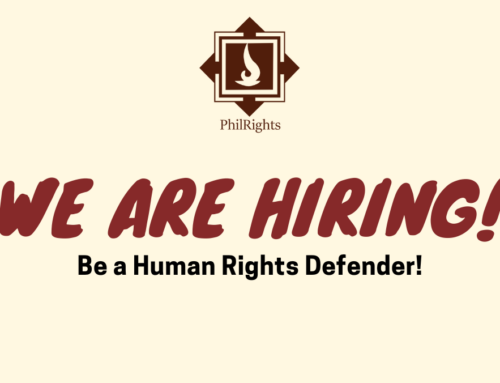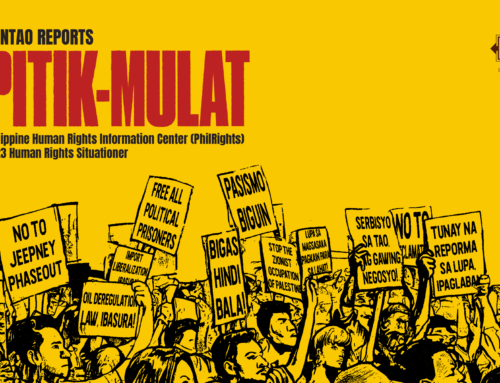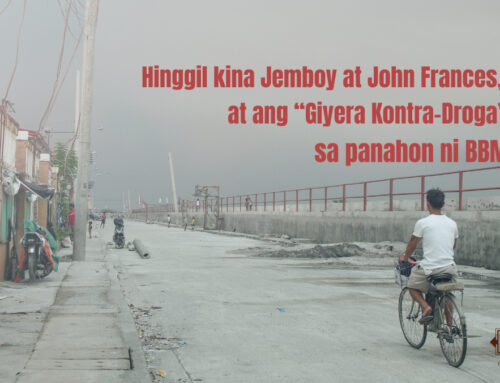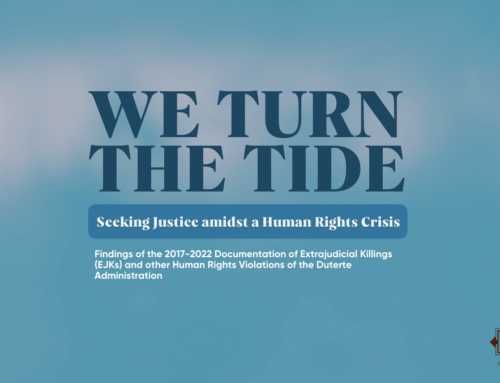Soldiers rounded up dozens of young men, often detaining others if they couldn’t find the suspects they were seeking, and held them in harsh conditions for weeks or months without charge. At least some were severely beaten. Human Rights Watch interviewed more than 15 former detainees and family members of current detainees, as well as numerous government officials and other witnesses to arrests in Rumbek, the capital of Lakes state, in April and May.
“Having soldiers round up, detain, and beat civilians is no way to resolve conflict or to strengthen the country’s justice system,” said Daniel Bekele, Africa director. “Civilians should never be held in military detention or subjected to this kind of illegal, inhumane treatment.”
On February 10, following inter-communal fighting between two groups of the Kok clan of the Dinka ethnicity, the state governor, Matur Chuot Dhuol, ordered soldiers to arrest 50 men from each side from two villages in Rumbek East county, regardless of whether there was evidence they participated in the fighting. Many of those arrested were relatives of people who participated but had fled.
Three witnesses – a community leader present during the arrests in one of the villages, the wife of a man who was arrested and was in custody in early May when Human Rights Watch spoke to her, and a former detainee – told Human Rights Watch that armed soldiers randomly arrested young men from the market or from nearby homes to fill the quota.
“When they finished the gathering they were asking, ‘Where are you from?’” the former detainee said. “The Kok were put to one side…. Those not Kok were allowed to leave.”
The community leader said that 114 Kok men from the two villages were arrested and taken to Langchok and none had been involved in the gun battle.
At least some of those arrested have been released but authorities should immediately release all remaining detainees. If the authorities intend to prosecute any of those detained, they should immediately charge them with a recognizable crime, respect their full due process rights, and ensure that any further detention is judicially authorized and in a lawful detention center.
Any detainee not released should be informed of charges against them, be given access to counsel, and brought before a judicial authority. The detainee should also be allowed to see family members and receive any needed medical treatment. South Sudan authorities should ensure that no civilians are held in military detention facilities.
Dhuol and other authorities have said that the failings of Lakes state’s police, judicial system, and prison service have forced the state government to use soldiers to fulfill their responsibilities to protect civilians from armed violence and to ensure accountability for crimes. Gun violence in Lakes state since South Sudan’s independence in 2011 has resulted in numerous deaths and displacement and has stymied desperately needed development in the region.
Police, prosecutors, and members of the judiciary expressed disappointment with Dhuol’s heavy-handed policies, which they said undermined both their own roles and the rule of law in Lakes state. No former detainee who spoke to Human Rights Watch has been charged with a crime and, except for in one case, the police, prosecutors, and officials from the judiciary did not authorize any of the arrests or detentions.
Witnesses told Human Rights Watch that soldiers who made the arrests in February held the detainees in the Langchok military detention facility, about 10 kilometers from the town of Rumbek, in a corral-like structure made of thorny branches.
People who had been detained told Human Rights Watch that they had suffered from the heat and shortages of food and water, and that soldiers beat many of the detainees. Many were kept in Langchok for more than two months. When Human Rights Watch was there in May, more than 69 civilians were still being held, and some are still there.
South Sudan’s Transitional Constitution states that police may detain suspects for 24 hours or produce them in court, and should promptly inform suspects of the reason for the arrest and any charges. None of the former detainees who spoke with Human Rights Watch were charged with a crime or had met with a lawyer.
The spate of arrests and detentions were carried out on the authority of Dhuol, who is also a senior army commander. President Salva Kiir removed the previous governor by decree and appointed Dhuol as a caretaker governor, pending elections, following severe inter-communal fighting near Rumbek in December and January, which reportedly killed more than 90 people.
Dhuol told Human Rights Watch he was forced to use soldiers to arrest and detain violent criminals to protect civilians and provide justice. Dhuol also said that he was forced to detain them in the Langchok military barracks because of overcrowding in the Rumbek prison and because prisoners sometimes escaped from the prison.
Dhuol said that he had requested that Juba send four judges to try some of those being held in Langchok because local judges are biased and overwhelmed with other cases. Some of the former detainees were released after appearing in a “special court” in Langchok made up of chiefs, but members of the judiciary in Rumbek said the court was illegal and said they had no oversight over the chiefs.
Dhuol contends that local police officers lack the resources and training to apprehend armed cattle raiders and other armed criminals, an assessment widely seen as accurate. However, even if soldiers are used to carry out police functions, they are bound by the police act and criminal laws of South Sudan. Civilians should never be kept in military detention sites.
“This kind of ‘rough justice’ violates human rights and undermines the country’s fledgling criminal justice system,” Bekele said. “This example of militarized response to crime completely ignores the established laws of South Sudan.”
Soldiers arrested many people who were not involved in suspected crimes to compel suspects who had fled to surrender, witnesses told Human Rights Watch. Such “proxy” detentions are unlawful yet persist in South Sudan. Human Rights Watch had previously urged the Interior and Justice Ministries to review the files of all prisoners in South Sudan to ensure that every prisoner’s file is complete and their detention lawful.
Dhuol told Human Rights Watch he had ordered the arrest and detention at Langchok of 75 Kok men and, separately, 58 “highway robbers.” However, Human Rights Watch found evidence indicating that the military arrested at least 57 other people and held them in Langchok.
In mid-February soldiers operating under the command of the Rumbek Central County commissioner, Abraham Mayen Kuc, arrested 10 cattle herders from the Boor clan of the Dinka ethnicity. The soldiers killed two cattle herders in the process. Kuc told Human Rights Watch that he ordered the arrests because the young men refused to move their cattle camp and he was concerned their presence would lead to conflict.
“I saw them shooting,” one of the cattle keepers said. “I saw the people even falling down, two were killed, one was injured. When they gathered everyone, they asked which section
In interviews with former detainees, family members, police, and other authorities, Human Rights Watch identified 47 other detainees or former detainees in Langchok. The detainees were arrested for a wide range of reasons, from allegedly killing soldiers, to allowing prisoners to escape, to arguing with security forces.
The former detainees said they experienced extreme heat, especially because the Langchok detention structure lacked a roof for most of their time in detention, and shortages of water and food. They said they were painfully shackled together in groups 24 hours a day and were only allowed out of what they described as a crowded and dirty detention area once a day.
Authorities denied to Human Rights Watch that anyone was beaten in Langchok, although seven former detainees described specific instances of harsh beatings. Five of the detainees told Human Rights Watch they were forced to lie on the ground while two soldiers, one on either side, beat them on their buttocks with strips of rubber from tires 50 to 100 times and a third soldier counted the blows out loud.
All five said that they had been beaten at least once soon after arriving at Langchok. Two other detainees said beatings by soldiers were common while they were in detention, although they were not beaten themselves.
Relatives of detainees said that their family members had been hit, and a politician who visited the detention site said he saw about 20 men who had been beaten so badly on their buttocks that they ate lying down on their stomachs.
“Langchok is horrible,” one former detainee said. “There is … beating every morning, people are being kept – they can’t go to the toilet [when they want]. Even at night you hear people crying … from [the pain of] their wounds.”
International law prohibits all ill-treatment of prisoners, including corporal punishment and prolonged chaining of prisoners. South Sudan law prohibits disciplinary measures that are cruel or degrading or could compromise the physical or mental health of a prisoner.
“What has happened in Lakes state should be a wakeup call to South Sudan’s government and to international donors,” Bekele said. “The military is stepping in because the police, judiciary, and prisons are failing to meet justice needs. But the solution is to bolster the capacity of the police and prisons, not resort to a militarized response that is violating people’s most basic rights.”
Powered By WizardRSS.com | Full Text RSS Feed | Amazon Affiliate software for Amazon Store websites | Android Forums | WordPress Tutorials







